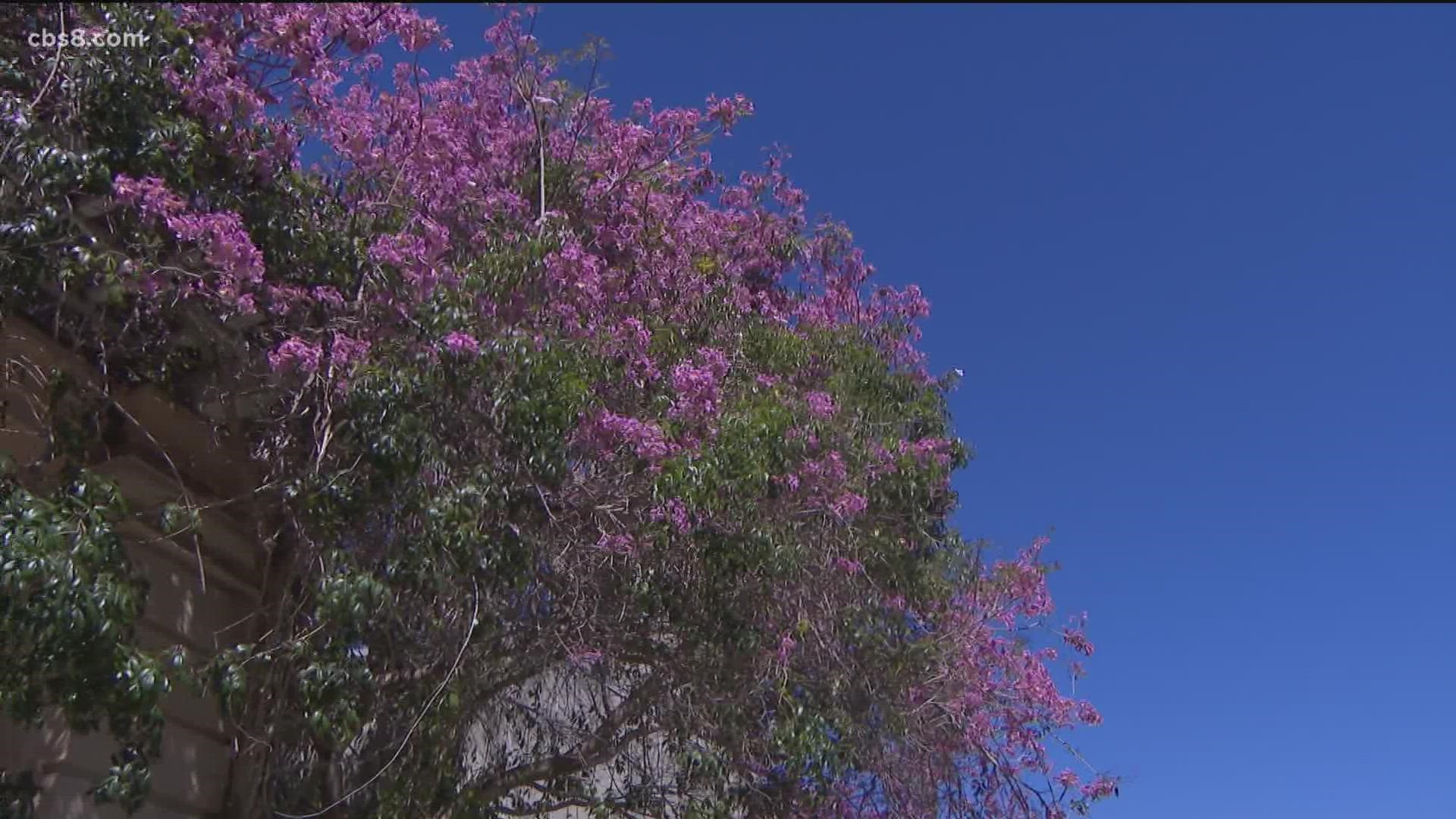SAN DIEGO — Allergy sufferers visiting Balboa Park say their symptoms have gotten progressively worse in recent years.
Maddy Ngo, a student at California Polytechnic State University, San Luis Obispo says the springtime has made her allergies a lot worse with her sneezing a lot more.
Greta Peleckyte Ibrahim from Lithuania with her husband and baby says when she was younger, she did not have allergies at all, but has been getting more and more symptoms as an adult.
"I always start with a very itchy nose and throat, and then it just becomes a normal runny nose to a little cough,” said Ibrahim.
UC San Diego allergist-immunologist and clinical assistant professor Dr. Christine James says San Diego's weather has a huge impact on allergy symptoms.
"Especially windy dry days can be a problem because that wind blows that pollen around, and then your exposure is much higher,” said James, who is originally from Kentucky.
New research from the University of Michigan says, "Climate change is making allergy season even worse."
Scientists Yingxiao Zhang and Allison L. Steiner studied future change in pollen season's start date and end date, and found rising temperatures and increasing carbon-dioxide levels could increase the annual amount of pollen emitted each year up to 200%.
"With those rising temperatures, you have a lengthening of your allergy season, so your plants have more time to reproduce and emit that pollen,” James said.
The study says more CO2 will drive trees, grass and weeds to produce larger amounts of pollen.
By the end of this century, researchers predict pollen emissions could begin 40 days earlier in the spring than we saw 1995 to 2014.
Those with bad allergies could see pollen season last an additional 19 days.
"I don't feel that medicine helps a lot, but I still keep taking it because I don't feel like I have any other choice,” said Ibrahim.
Some are saying allergy medicines like Aller-tec, to nasal sprays, such as Afrin are not as effective for their severe symptoms.
"For the allergies, it definitely helps a little bit, but it's still there,” Ngo said, who takes Aller-tec.
Dr. James says on high pollen days, avoid outdoors, keep your windows closed, and if you are going to be outside, go later in the day and take off outdoor clothes and shower to rinse off that pollen.
For severe symptoms, see an allergist to step up your medication or consider allergy shots.
"If we don't address climate change, if we don't address these rising carbon dioxide levels, then these types of medical problems like allergies are just going to get progressively worse,” said James.
WATCH RELATED: Baseball is back! San Diego Padres begin spring training in Peoria, AZ (March 2022)

